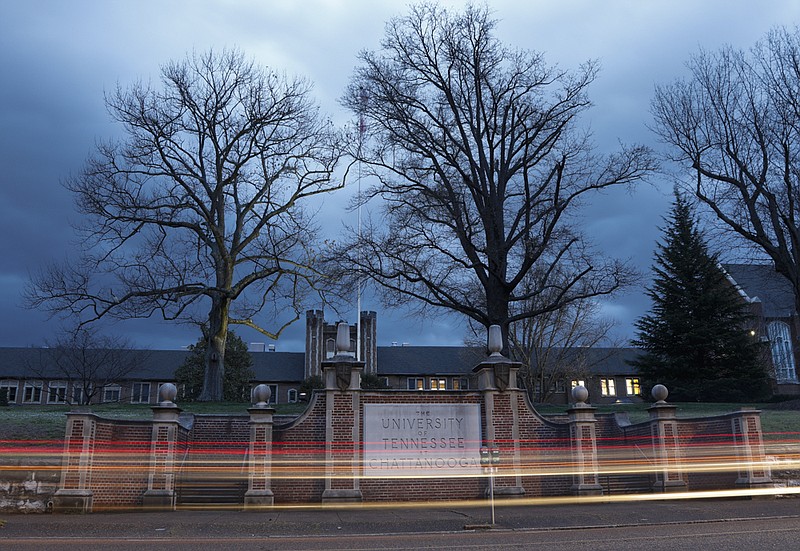Friday afternoon, with the blessing of University of Tennessee at Chattanooga officials, what was called "a demonstration of solidarity" was to have taken place on the school's Chamberlain Field.
Organizers, which are said to be students, claimed they were looking for "quantifiable change" from the "tone deaf" responses of UTC Chancellor Steven Angle about systemic racism they allege exists on the campus.
Thus, like many groups that believe themselves to be aggrieved, they have listed "demands" for the university.
University officials said the students had every right to assemble and express their opinions and that they would listen to what the protesters had to say.
The group's No. 1 demand is that the university police department be disarmed, which differs from other groups' demands that various city police departments across the country be disbanded or defunded.
Certainly, the great majority of crimes that occur on the campus will never need the threat of a firearm. Campus police, after all, are usually called after the crime has been committed, be it a car theft, a break-in or even a rape, when the perpetrator is long gone.
Unfortunately, as in the cities where groups propose police departments be disbanded, criminals don't play by the rules. They don't disarm if a police department disarms. They don't disband their illegal activities if a police department disbands.
So the ability to recite soothing words or the threat to call a counselor on the rare occasion of a student, teacher or staff member on the campus being threatened with bodily harm by an individual with lethal weaponry is not very appetizing. Indeed, parents considering sending their children to UTC would be far less apt to do so if they thought the campus wouldn't be safe.
That said, we believe it would behoove the university to take a look at its campus police and its practices. Earlier this week, a Black former university staff member said she had an "alarming encounter" with six UTC police officers, who stopped her after she allegedly ran a stop sign, a charge she denies.
Six?
And while any encounter today can be blown out of proportion if the races of the individual stopped and the law enforcement officer making the stop are different - though we can't speak personally to the stop involving the former UTC staff member - we can vouch for incidents of overreach by UTC campus police.
So we think it is important for the public to understand when and why they can be stopped by UTC officers when they are traveling on a public street, and one not necessarily surrounded by university-owned buildings. We believe it is imperative for people who travel through the campus to know what the geographic parameters of the UTC police jurisdiction are, and how its enforcement interacts with that of the Chattanooga Police Department.
Further, since the campus is not self-contained, the public should know what campus police are allowed to stop citizens for, especially if the alleged infraction does not involve UTC property or a flagrant moving violation endangering the lives of UTC students or is a matter involving state agencies such as a driver's license or expired tag.
A second part of the student activist demands involving the UTC police is to divest, or remove money from, the police budget and allocate "funds for higher wages, scholarships, and counseling resources."
If the campus police have six officers available to effect a traffic stop on someone who allegedly ran a stop sign, they may have too many people - at the moment. On the other hand, all current classes are online, and few people are supposed to be on campus. That doesn't make the excessive stop right, but when all students, faculty and staff are on campus, a force would naturally need more people.
Some of the other demands involve investing in more resources in mental health, counseling, racial and cultural sensitivity programs, and systems involving reporting racism and hate crimes. We're sure those making the demands have no idea how much the university - like other schools across the country - has invested in just such programs over the past two or three decades, but the growth in the school's student services bureaucracy has been a major factor in the skyrocketing tuition increases over that time.
Other demands insist UTC "fully back," "take an affirmative stance," "condemn" or "criticize" various organizations or agencies.
The university, though, is in the education business and should remain squarely in that business. What its employees and students do, or have to say about, such organizations or agencies on their own time and away from the campus is their business.
